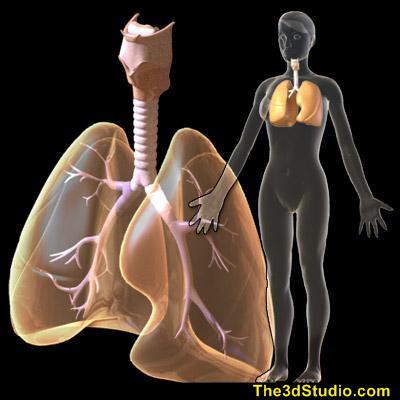Adrenaline, Stress and Obesity-All you need to know
Adrenaline, Stress and Obesity-Introduction and background
The prevalence of obesity has increased dramatically in the last several decades. Obesity, particularly upper body obesity (UBO), is associated with type 2 diabetes (T2DM), dyslipidemia, and hypertension. These associations describe the metabolic syndrome, a clustering of symptoms with insulin resistance as a core cause. Currently, the prevalence of obesity and metabolic syndrome is above average deeming both conditions important public health issues, requiring immediate efforts to understand these diseases and reduce their occurrence.
Stress response:
Role of hypothalamic–pituitary–adrenal axis
Stress is a challenge to the natural homeostasis of an organism. Animals react to stress by producing a physiological stress response to regain equilibrium lost by the stressor. The stress response is characterized by acute behavioral and physical adaptations, including increased cognition, analgesia, gluconeogenesis, lipolysis, and inhibition of reproduction.
There are two major components of the stress response: the autonomic nervous system (ANS), which encompasses the sympathetic and parasympathetic nervous system, and the HPA axis. These systems work centrally and peripherally to produce several responses. The ‘fight or flight response’ is an active reaction to either confront the stressor or escape confrontation.
The ‘defeat response’ is when the individual does not engage in either the fight or flight response and ultimately ‘loses’ the confrontation; this is the primary stress response in modern society and is associated with HPA axis changes. Although the ANS is a key element of the stress response, the purpose of this review is to discuss the role of the HPA axis in obesity and metabolic disease.
Stress can be caused by external stressors such as employment or social strains or by intrinsic stressors such as sleep deprivation. Although an acute short-term stress response is necessary for homeostasis recovery, chronic or prolonged stress responses can be harmful and may cause several disease states. A study on women reported that history of depression was associated with hyperactivity of the HPA axis and decreased bone mineral density. In the past 30 years, numerous studies have shown that obesity and other metabolic risk factors are associated with lower socioeconomic status, job strain, sleep deprivation, and depression
Hypothalamic–Pituitary–Adrenal axis
The HPA axis is one of two major neuroendocrine systems associated with the stress response. Corticotrophin-releasing hormone (CRH), secreted from the Para-ventricular nucleus (PVN) of the hypothalamus, stimulates the synthesis of adrenocorticotropic (ACTH) from the anterior pituitary gland. Other hypothalamic ACTH secretagogues are arginine vasopressin and oxytocin, also produced in the PVN. Physical stressors such as hypoglycemia, hemorrhage, and immune stimuli activate PVN neurons expressing arginine vasopressin and CRH. ACTH stimulates cortisol production from the adrenal cortex.
The first evidence that cortisol levels may be related to obesity and metabolic disease was based on clinical observations of Cushing’s syndrome; the pathological hypercortisolemia in Cushing’s syndrome is associated with UBO, glucose intolerance [impaired glucose tolerance (IGT)], and hypertension. Adrenalectomy in Cushing’s syndrome patients reverses IGT and obesity.Studies in the field of obesity research in the past 10 years have demonstrated that obesity and metabolic syndrome are characterized by chronic inflammation.
Genetic polymorphisms of hypothalamic–pituitary–adrenal axis in obesity
Currently, there are few genetic polymorphisms that present with both functional alterations in the HPA axis and obesity. Several polymorphisms at the level of ACTH synthesis, and in genes associated with glucocorticoid receptor or local cortisol metabolism (11β-HSD1 and 11β-HSD2), which may predict UBO, have been described. The variability in the heritability of obesity makes it difficult to determine the role of these polymorphisms in common obesity.
Fetal programming, stress, and obesity
Stress experienced in early life may also be a risk factor in the development of obesity and metabolic syndrome. A recent study on nonhuman primates reported that juvenile bonnet macaque monkeys exhibit greater weight, BMI, waist circumference, and insulin resistance if their mothers are exposed to food insecurity when the monkeys are young (age 3–5 months).
Sleep deprivation and obesity
In the past 30 years, the average nightly sleep duration has decreased from 8–9 to 7 h per night. Currently, 30% of all adults in the USA sleep less than 6 h per night. Sleep deprivation has been linked to both increased risk for obesity. Epidemiological studies have reported a negative association between BMI and sleep duration in adults and, children. In laboratory studies, insulin sensitivity was reduced in sleep-restricted individuals.
Sleep deprivation is suggested to be a chronic stressor that may contribute to increased risk for obesity and metabolic diseases, possibly in part through HPA axis dysregulation, although the data are inconsistent. Sleep deprivation resulted in decreased night-time and morning plasma cortisol levels, or increased night-time plasma cortisol levels in other studies. To date, there have been no reported studies on the effect of sleep deprivation on salivary cortisol or UFC.
Conclusion
The present review provides basic support for the relationship between chronic stress, alterations in HPA activity, and obesity. Although animal models provide evidence of the association of stress, HPA axis, and metabolic diseases, human studies have proven to be more challenging, with more understated changes in the HPA axis.
In modern society, where over nutrition, sedentary lifestyle, and sleep deprivation are typical traits, chronic exposure to environmental stress potentially contributes to the development of obesity. This may be at least partially mediated through the HPA axis, although this relationship is complex and many factors, including genetic polymorphisms, tissue-specific cortisol metabolism, chronic inflammation, leptin, ghrelin, and sex hormones, influence the strength of this association. Future studies should address the mechanisms that HPA activity dysregulation contributes to obesity and other metabolic complications. Changes in food intake appear to be a primary target. These actions may be related to effects of leptin and other central signals such as NPY and insulin.
HPA axis dysregulation in obesity is subtle and difficult to assess clinically. Continued research in this field is imperative to define a causal role for chronic stress and obesity, and ultimately develop effective treatment or preventive interventions.
Adrenaline, Stress and Obesity-Introduction and background























 Weight Loss Wellness Retreat AWAREmed .
Weight Loss Wellness Retreat AWAREmed .







 The nitty gritty about our friend sometimes foe called Cortisol
The nitty gritty about our friend sometimes foe called Cortisol
 Stress Management – Happy Halloween!
Stress Management – Happy Halloween!
 What stress does to the body
What stress does to the body Everything You Wanted to Know about Stress!!!!
Everything You Wanted to Know about Stress!!!! natural sleep: Integrative Therapeutics Cortisol Manager, 90-Count
natural sleep: Integrative Therapeutics Cortisol Manager, 90-Count